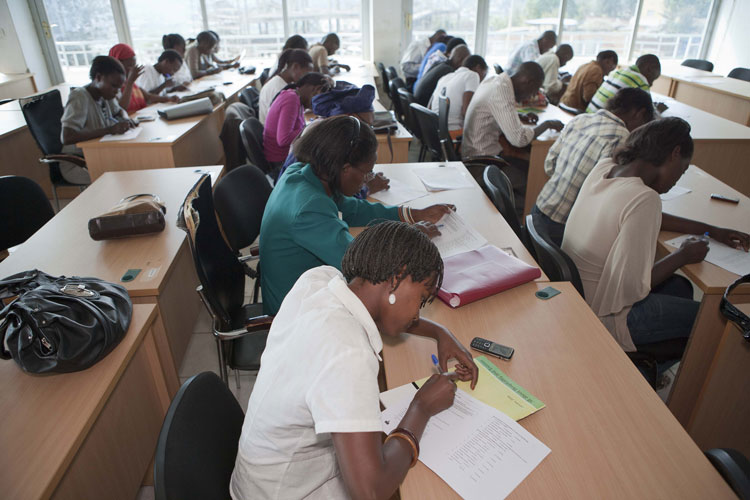
In the lead up to the publication of the new Strategic Plan of Survivors Fund (SURF) for 2021 to 2023, we will be publishing several posts to provide more context of our work – and implications for the the survivors of the genocide against the Tutsi in Rwanda which we support.
Education
In sub-Saharan Africa, Rwanda is one of the top-performing countries in education. 98 per cent of children are enrolled in primary school.
However, there are still several challenges in education. Although nearly every child enrols into primary school, only 71 per cent of children complete their primary education. Classrooms are often too crowded, with an average of 62 students for every qualified teacher.
Just 18 per cent of children in Rwanda are enrolled in pre-primary education. There are too few pre-primary facilities, insufficient government budgeting for pre-primary education, and inadequately trained pre-primary educators.
The quality of education requires significant attention. Primary students score too low in numeracy and literacy exams. Teachers are also unable to teach in English, the official language of instruction, and rely too heavily on traditional, teacher-centred instruction.
Although there are relatively equal numbers of boys and girls in classrooms, girls are more likely to drop out of school. Boys also outperform girls in 26 of Rwanda’s 30 districts. Girls are also significantly under-enrolled in technical, vocational and tertiary education.
Implication for survivors and related vulnerable groups: Survivors have benefited from access to schooling since the establishment of the Government Assistance Fund for Vulnerable Genocide Survivors (FARG) in 1998. Over 100,000 survivors completed secondary school with support from FARG, of which a further 33,000 survivors have been funded to complete higher education. However, second-generation survivors (in particular children born to women survivors raped during the genocide) did not benefit from FARG support and have required additional support to secure the same educational opportunities afforded to survivors. There is a particular need for more vocational training to enable school graduates to transition into employment.
